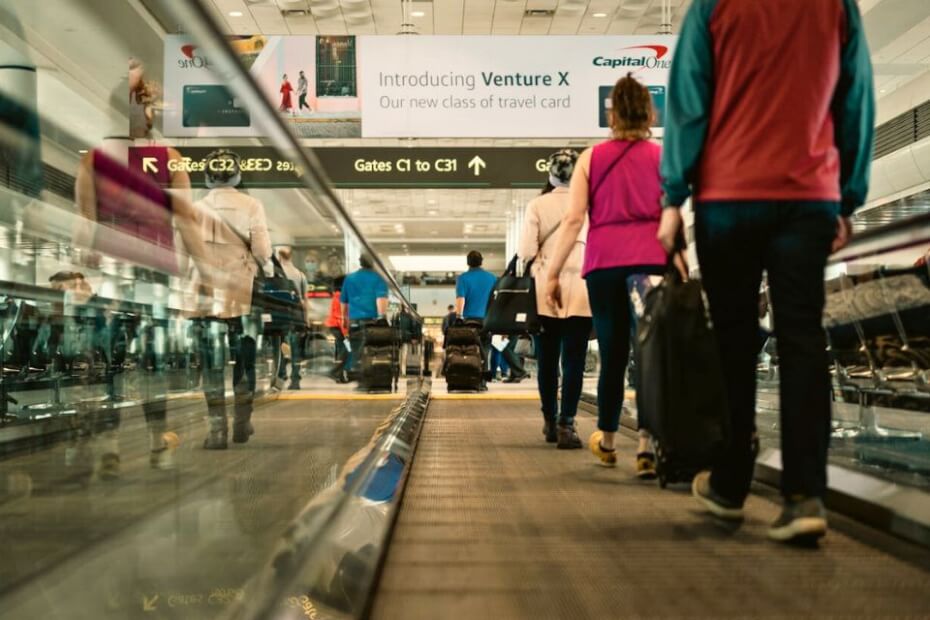
The United Kingdom (UK) is rolling out its Electronic Travel Authorization (ETA) system. Short-term visitors from visa-exempt countries must apply for pre-travel authorization before their UK trip. However, there are exemptions to the UK ETA scheme.
The ETA aims to strengthen border security by pre-screening non-visa travelers and streamlining immigration checks and entry into the UK. Understanding who needs a UK ETA and who is exempt can help travelers plan ahead and avoid disruptions.
This article expounds on who does and does not need to apply for an ETA, how to apply for the digital travel permit, and its implementation timeline.
Who needs an ETA
The UK ETA is an electronic travel authorization required for all visa-exempt travelers, including babies and children, visiting the UK for short-term stays of up to six months.
Visa-exempt or non-visa travelers only refer to travelers whose passports were issued by a country with a visa waiver agreement with the UK. They do not need to go through the complex UK visa application system to visit.
Before the ETA, non-visa travelers can enter the country without any pre-screening checks. The new system changes this so that all UK travelers are vetted, allowing the government to identify and stop potential threats before they arrive.
Non-visa travelers must have an ETA before their trip to the UK. Whether they visit for leisure, such as tourism or seeing family and friends, permitted business activities, short-course study, or transit.
Those coming to the UK under the Creative Worker visa concession must also have an ETA.
Find a complete list of countries with a visa-waiver agreement with the UK here.
Who is exempt from the UK ETA

As with any rule, there are exemptions. The following groups are exempt from needing a UK ETA when visiting the UK:
British Passport Holders
These are UK nationals, including citizens of England, Scotland, Wales, and Northern Ireland. Also included are residents of British Crown Dependencies: Jersey, Guernsey, and the Isle of Man.
Citizens of British Overseas Territories
Citizens of British Overseas Territories, such as Gibraltar and Bermuda, must travel to the UK on their British Overseas Territory passports to be exempt from the UK ETA scheme.
Republic of Ireland Citizens
Citizens of Ireland benefit from the Common Travel Area (CTA) agreement, allowing freedom of movement between Ireland and the UK without a visa or ETA.
Foreign nationals legally residing in Ireland
This UK ETA exemption applies to non-Irish citizens legally residing in the Republic of Ireland only if they meet all three requirements:
- They are legal residents of Ireland
- They can visit the UK without a visa
- They are coming to the UK via the CTA, including Jersey, Guernsey, and the Isle of Man.
UK residents and long-stay visa holders
This group includes foreign nationals with a valid UK residency permit and individuals legally residing in the UK for work or study purposes.
It also consists of those who have settled and pre-settled status in the UK under the European Union Settlement Scheme (EUSS). The EUSS gives Withdrawal Agreement rights to non-British citizens and their families who moved to the UK before Brexit.
Travelers who currently require a UK visa
Visitors from countries that already require a visa to enter the UK do not currently need an ETA.
Why are Irish citizens exempt from the UK ETA scheme
One of the most significant UK ETA exemptions applies to Republic of Ireland citizens due to the Common Travel Area (CTA) agreement.
The Common Travel Area is a longstanding arrangement between the UK and Ireland that allows citizens of both regions to move freely across their borders.
- No Passport Requirement: Irish citizens can enter and travel around the UK without a passport, although carrying one is strongly recommended for identification purposes.
- Extended Rights: Irish citizens enjoy rights similar to UK citizens, including the ability to live, work, and study in any part of the UK without additional documentation.
The CTA dates back to the 1920s when a border was established between UK-governed Northern Ireland and the Irish Free State.
The agreement was designed to prevent disruptions to trade and personal travel. The arrangement has continued even post-Brexit.
Applying for an ETA

Those who need an ETA can apply for the digital travel permit online via the UK Government website or the UK ETA mobile app. The UK ETA application process is straightforward and entirely online. Follow these steps:
1. Prepare the required documents
- A valid biometric passport.
- A recent passport photo.
- A working email address.
- A debit or credit card, Apple Pay, or Google Pay for payment.
2. Complete the online application form
Fill in personal information, contact details, and passport details. Applicants must also answer all security questions truthfully.
3. Pay the application fee
Online payment is required to finalize and submit the application.
4. Wait for approval
Once approved, the Home Office will send a confirmation to the email provided by the applicant. The UK ETA will be electronically linked to the applicant’s passport.
ETA Applications are typically processed in three days, give or take. However, processing may take longer in some cases. Travelers are advised to apply well before their trip to avoid any delays.
UK ETA implementation and timeline
The UK ETA is valid for two years or until the passport it is linked to expires, whichever comes first. If the ETA-linked passport expires earlier than two years, the traveler must reapply for a new ETA to be linked to their new passport to be allowed travel to the UK.
Travelers from Bahrain, Kuwait, Oman, Qatar, Saudi Arabia, and the United Arab Emirates already use the ETA to visit the UK.
The ETA scheme started accepting applications from non-visa nationals outside Europe on 27 November 2024. These visitors must have an ETA before they travel to the UK on and after 8 January 2025.
Starting 5 March 2025, European nationals, excluding Irish citizens, can begin applying for an ETA. It will be mandatory for all non-visa nationals to have an ETA before traveling to the UK on and after 2 April 2025.
Key takeaways
Those who need an ETA to travel to the UK must apply for one before their journey. Without a valid ETA, travelers will be denied boarding by their carrier, whether taking air, sea, or land transportation to the UK.
The UK ETA system is being phased in gradually and is expected to be fully operational globally by the end of 2024. Travelers are advised to monitor updates and check their eligibility before visiting the UK.

